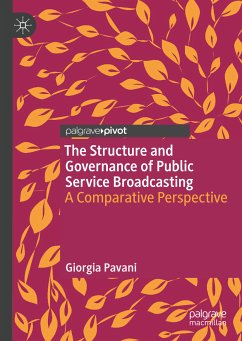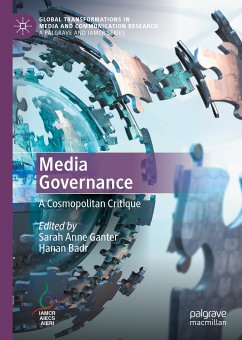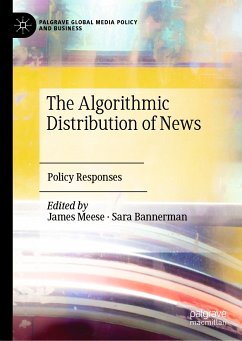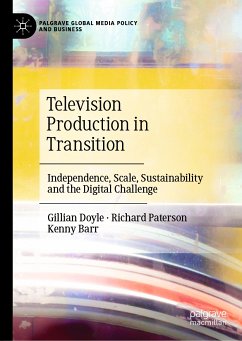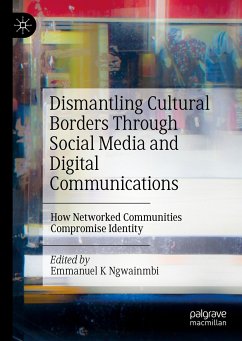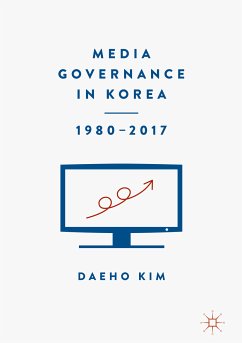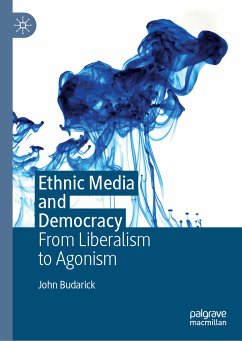
The Values of Public Service Media in the Internet Society (eBook, PDF)
Versandkostenfrei!
Sofort per Download lieferbar
Statt: 139,09 €**
97,95 €
inkl. MwSt.
**Preis der gedruckten Ausgabe (Gebundenes Buch)
Alle Infos zum eBook verschenkenWeitere Ausgaben:

PAYBACK Punkte
49 °P sammeln!
This book provides a global overview of the challenges and opportunities faced by Public Service Media (PSM) organizations, including the increasing power of digital platforms, changing consumption habits, and reforms on funding models. In order to survive in the new, transforming media ecosystem, PSM organizations need to retain their core values whilst also embracing new values stemming from society's increasingly complex communication needs and value systems. The contributions of 40 authors from three continents are grouped into three areas in which PSM organizations can create value: innov...
This book provides a global overview of the challenges and opportunities faced by Public Service Media (PSM) organizations, including the increasing power of digital platforms, changing consumption habits, and reforms on funding models. In order to survive in the new, transforming media ecosystem, PSM organizations need to retain their core values whilst also embracing new values stemming from society's increasingly complex communication needs and value systems. The contributions of 40 authors from three continents are grouped into three areas in which PSM organizations can create value: innovation, governance and relation to the market, and democratic reinforcement. The book illustrates how PSM can create value for different stakeholders, in different contexts, and through different methods. Contributing to a better understanding of the role of PSM in current media systems, PSM is shown as a key agent for the development of the public sphere and democratic societies.
Dieser Download kann aus rechtlichen Gründen nur mit Rechnungsadresse in A, B, BG, CY, CZ, D, DK, EW, E, FIN, F, GR, HR, H, IRL, I, LT, L, LR, M, NL, PL, P, R, S, SLO, SK ausgeliefert werden.



